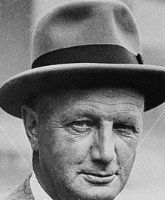“Rowe tasked him with instigating attacks and based much of the Tottenham game plan around Ramsey's accurate passing.”
“Tottenham became a great side through push-and-run, which was tailor-made for Alf. There was no long ball from him, and he was one of the crucial members of the side ... Alf played a tremendous part in setting the pass pattern, which wasn't typical of the British game. It was a revolutionary side, very well-knit.”


